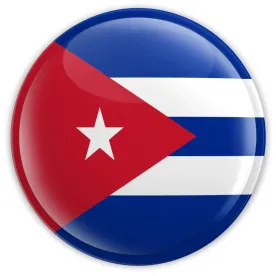On November 9, 2017, the Department of the Treasury’s Office of Foreign Assets Control (“OFAC”) amended the Cuban Assets Control Regulations, 31 C.F.R. part 515 (the “CACR”), with the stated intent of channeling economic activities away from the Cuban military, intelligence, and security services, while maintaining opportunities for Americans to engage in authorized travel to Cuba and support the private, small business sector in Cuba. These amendments implement the National Security Presidential Memorandum (“NSPM”), “Strengthening the Policy of the United States Toward Cuba,” which was signed on June 16, 2017. While the changes may limit certain new business opportunities in Cuba for Americans, they also provide clarity regarding with whom Americans may not do business, and should be considered accordingly by institutions in regards to tailoring their Anti-Money Laundering (“AML”) and OFAC-related due diligence and compliance procedures.
The amended regulations forbid direct transactions with certain entities and subentities associated with Cuban military, intelligence and security services. In addition, OFAC is amending the interpretive provision for incidental transactions to issue conforming edits and clarify that authorized transactions ordinarily incident to licensed transactions exclude direct financial transactions with such entities and subentities if the terms of the applicable general or specific license expressly exclude such direct financial transactions. These entities and subentities can be found on the State Department’s newly-published List of Restricted Entities and Subentities Associated with Cuba (Cuba Restricted List), which can be found here. Although new transactions with entities and subentities on the Cuba Restricted List are not permitted, somewhat surprisingly, commercial engagements in place prior to the State Department’s listing of any entity or subentity will continue to be authorized.
In keeping with the amendments, the Department of Commerce’s Bureau of Industry and Security (BIS) also is making changes to restrict trade with the Cuban government and to further open up trade with the Cuban private sector. BIS has established a general policy denying export of items for use by entities and subentities on the Cuba Restricted List. Meanwhile, the agency is simplifying and expanding its license exception that authorizes exports to the Cuban private sector. A link to BIS’s new rule is here.
Finally, in accordance with the NSPM, OFAC is making changes to the types of travel allowed to Cuba. First, it is no longer authorizing individual people-to-people travel. Instead, all travelers to Cuba on people-to-people trips must be accompanied by a person subject to U.S. jurisdiction who is a representative of an organization that is subject to U.S. jurisdiction and that sponsors such exchanges to promote people-to-people contact. Second, Americans engaging in certain authorized educational travel now will be required to do so under the auspices of an organization that is a person subject to U.S. jurisdiction, and to be accompanied by a person subject to U.S. jurisdiction who is a representative of the sponsoring organization.
Key Takeaways
-
As the government has stated repeatedly, the Cuba embargo remains in place. Most transactions between the U.S., or persons subject to U.S. jurisdiction, and Cuba continue to be prohibited, and OFAC continues to enforce the prohibitions of the CACR. So continue your diligence regarding any transaction involving Cuba.
-
The amendments provide clarity by restricting persons subject to U.S. jurisdiction from engaging in direct financial transactions with entities and subentities identified on the Cuba Restricted List. This means that you, or your vendors, will have another list to check before approving transactions or as part of due diligence.



 />i
/>i

